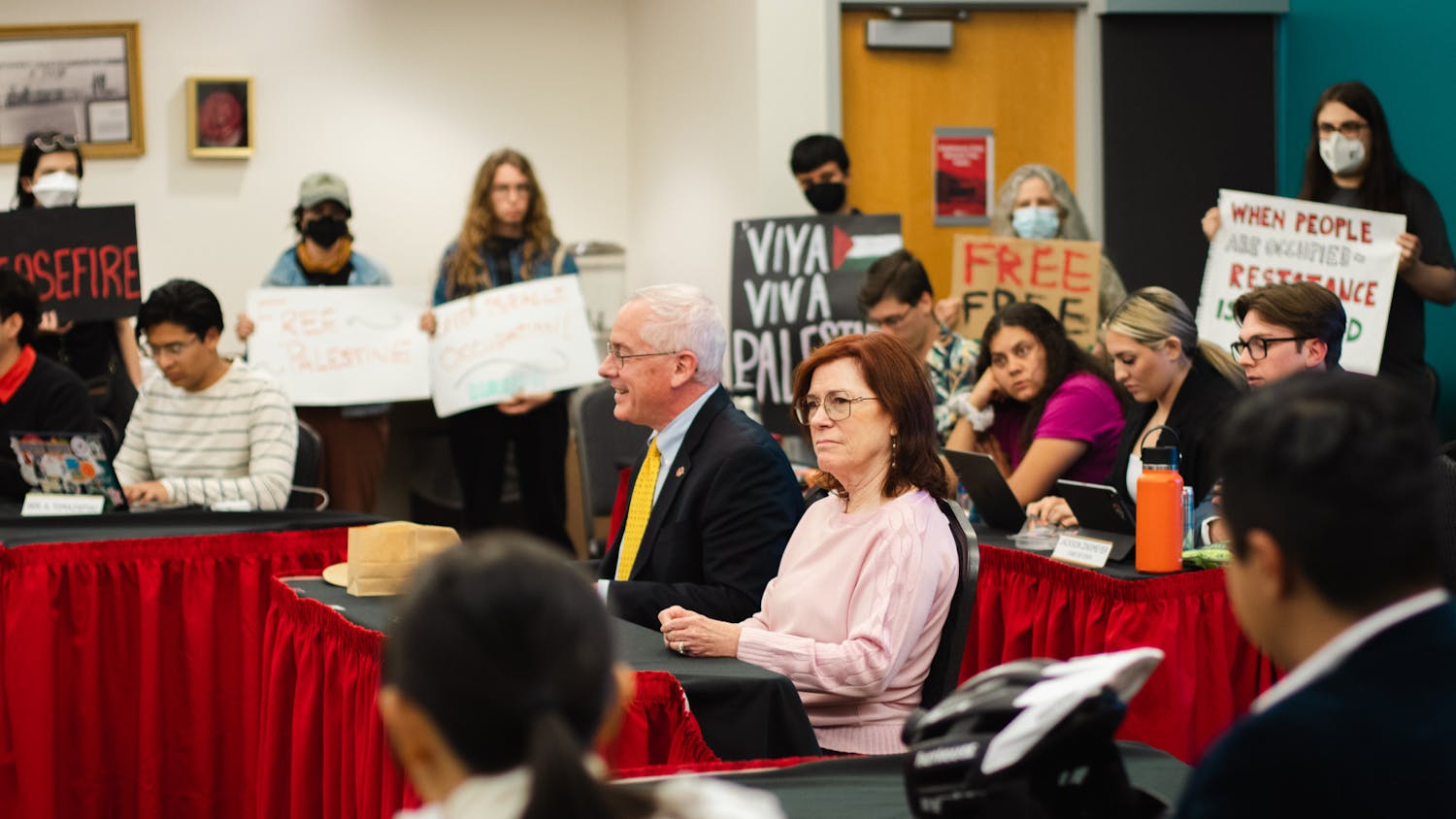Anyone can contract influenza at any time, no matter how healthy or ill they are — they simply have to be exposed to a strain of the virus, according to Megan Bass, a graduate student in the College of Pharmacy.
In 2014, the New Mexico Department of Health documented 1,322 vaccine exemptions in Bernalillo County alone, and 3,322 exemptions across the state.
Although this may appear minimal when taking into account the almost 440,000 examined in the sample, it is clear that not all New Mexicans are being vaccinated.
Last Friday, UNM’s College of Pharmacy and College of Nursing continued their yearly collaboration with the 12th Annual Fiesta de Flu on North Campus.
This event was organized in the hopes of providing the Health Sciences Center community with “quick, safe and reliable access to the annual flu shot,” while also giving nursing and pharmacy students hands-on experience, Bass said.
She helped organize and run the event and is the current chair for the American Society of Health-System Pharmacists’ Student-Society of health-system pharmacy immunizations.
Melanie Dodd, vice chair of the College of Pharmacy, has been involved with Fiesta de Flu since its creation in 2004.
Dodd is also an associate professor within the Department of Pharmacy Practice and Administrative Sciences, and the faculty advisor for the SSHP, which involves oversight of event coordination and planning as well as student supervision during the clinic.
“We have consistently provided between 700 to 1,000 flu vaccines every year,” Dodd said.
This year, the clinic provided the “inactivated injectable standard dose three-component flu vaccine to UNM faculty, staff, students and their family members, 18 years of age or older,” she said.
Though, due to recent data raising concerns about its efficacy, flu immunization via nasal spray was not offered this year, Bass said.
Each year, flu season’s timing and duration are subject to fluctuate, Bass said. Although it is not harmful to be immunized after this time of year, it is recommended that healthcare providers encourage patients to receive their flu shots before the end of October, she said, clarifying that flu season generally peaks between December and March, according to the Center for Disease Control and Prevention.
Get content from The Daily Lobo delivered to your inbox
Dodd said anyone six months or older should receive an annual flu shot, as “it is the best way to protect yourself and those around you from the flu.”
Bass said covering one’s mouth while coughing or sneezing, avoiding close contact with others while either person is sick, washing hands with soap and water and avoiding touching one’s eyes, nose and mouth can also help reduce the spread of influenza as well as other infections.
“Flu vaccines work to protect patients from three or four different viruses that have been researched and are anticipated to be some of the most common offenders of flu infection during the year,” Bass said. “Patients should receive the vaccine in order to protect themselves from getting severe infections associated with the flu, as well as for the protection of others within their households or throughout the community by reducing transmission risk.”
Bass said the most prominent flu vaccine misconception is that it can cause the recipient to contract influenza.
She clarified that the injectable vaccines are entirely inactive, do not contain any live virus and cannot cause an infection. The best method of dispelling the myth would be through patient and healthcare provider education, she said.
Bass said events like Fiesta de Flu are ways in which students can help improve community vaccination access and rates.
“Health in general, including the flu shot, can definitely impact someone’s life long term. Even if you are not concerned about getting sick yourself, get vaccinated for those patients who cannot or who are at very high risk for infections,” she said.
Elizabeth Sanchez is a reporter for the Daily Lobo. She can be reached at news@dailylobo.com or on Twitter @Beth_A_Sanchez.





